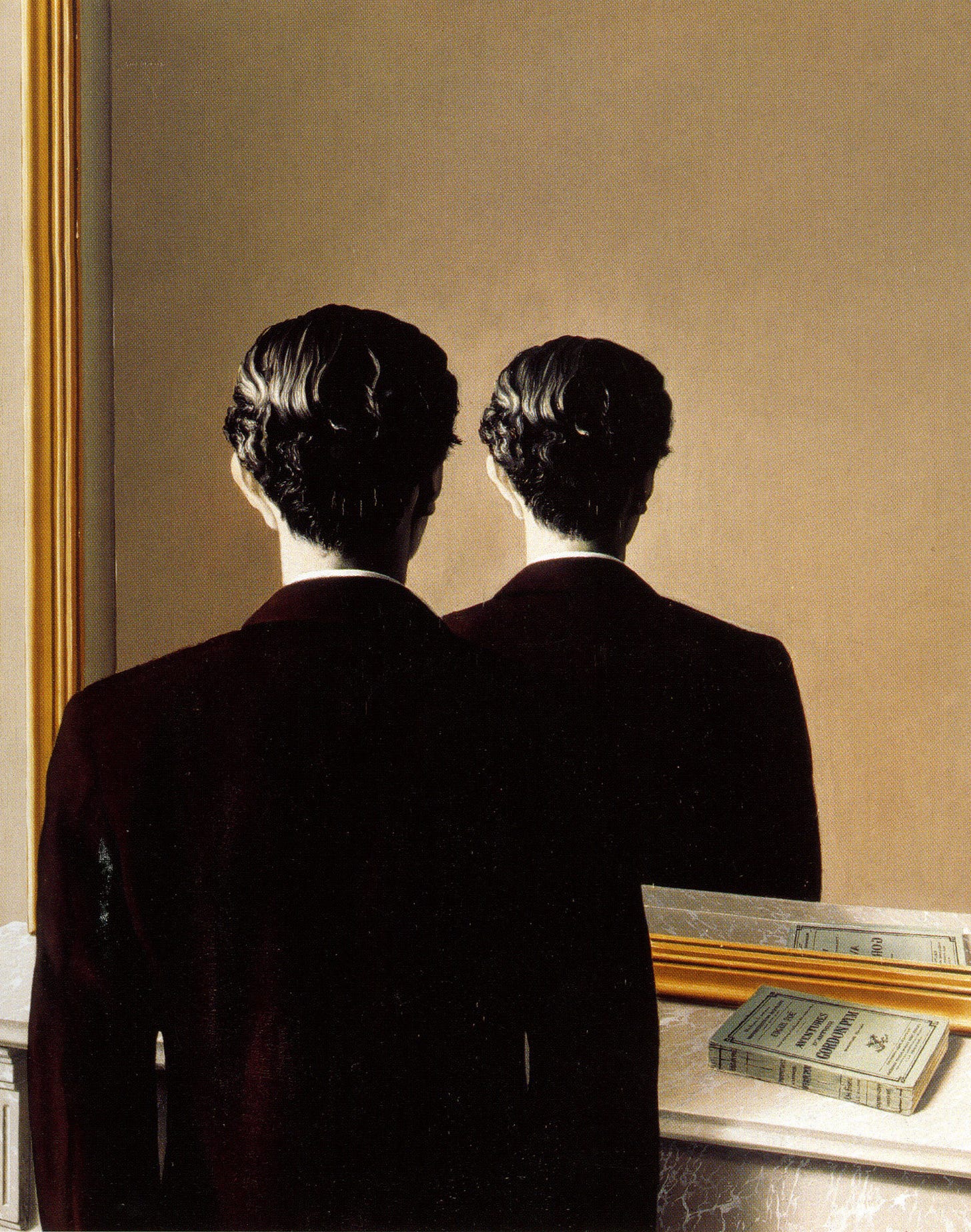If you're bored, try being less boring
If you don’t find people routinely interesting, you yourself are boring. This insight, though not new, came into sharper focus since moving to nyc.
One of the cool things about a place oversaturated in social interactions is that your ability to run experiments goes way up. With sufficiently high n, most things worth observing happen more than once. Things that appeared outlandish on first notice become more explicable when seen enough times, and if you pay close enough attention you can start to see patterns.
This happened to me within my first week here. I was out with my brother and, on separate occasions, wandered into a similar conversation with strangers several times.1 My initial hypothesis saw me as object: perhaps the way I look or my gait or affect draws this type of encounter. But something felt too passive about this.
So I thought hmm this is a new thing, why this, why now? A simple explanation went something like oh yah I’m in a new city and the people are different. To me, this could adequately account for one, but two?? three??? four???? Each successive one made me exponentially less certain of this conclusion.
What else then?
Beyond moving to nyc, I had started a new job. It was also in a physical office versus previously remote. Taken together, these things, new job and new environment, are evolutionarily taxing. What if I was fried? I thought. Perhaps social fatigue, like other forms of depletion, nudges us into low battery mode at some point. If you think about it like a spectrum stretching from agent to automaton, depletion renders you closer to the latter—passive, less present, disengaged. Was I the boring one after all? This seemed promisingly unpromising. The question I wanted to ask, to put it in Wittgensteinian terms: what would it look like if I were socializing with a depleted social battery?
I know what it looks like. The same thing happens when lazy Zach interacts with language models. Uninspired prompting causes Claude to default to generic conversation, relying on billions of dreary, predictable patterns. These are well-trod grooves, and without sufficient coaxing to do so, models just like humans, fall into the low-effort answers, because what reason am I giving to think this would not suffice?
Prompting Claude with tell me about Ana Karenina is much less interesting than with I recently read Ana Karenina and The Age of Innocence and noticed striking similarities between their protagonists, but the differences were even more revealing. How do these differences reflect variations in core personality traits, as well as society’s attitudes toward these behaviors in their respective eras?
This was the key insight: I was being boring, and all along I knew how to be less boring. Being less boring is a matter of being less bored; the key to being less bored is stringing together the right prompts.
Conversations, much like interactions with a language model, thrive or die based on the quality of our input, both implicit and explicit, reading and writing, listening and speaking. The richer the prompts, the richer the responses, and the richer the responses the greater texture from which to weave ever more intricate prompts.
Prompts are not atomic; there is context built up over time during the course of a conversation (or even multiple conversations). Like my second Ana Karenina prompt, prompts with context lace conversation with open threads to pull on and tie together as your converser sees fit. This context is the sinew of conversation, without which its muscle catabolizes to fat and nothing robust remains for you to build on top of. You and the person you’re talking with need this shared context to build, thread by thread, a tower that supports ascension to the things most interesting. It’s at this point, high atop the tower you’ve built together, where you can mutually overextend, stepping out with light airiness, unafraid of the weight of ego falling to its death. At this height, boredom simply can’t exist. Into each conversation you take your maps, imperfect, of the world and other people and, if you so choose, chart a new path, curiosity your compass.
The type of conversation itself is sort of beside the point but if you’re curious I wrote about one such example




Love this.
Your work vocab's on point! Sounds like you could use a breather, though.